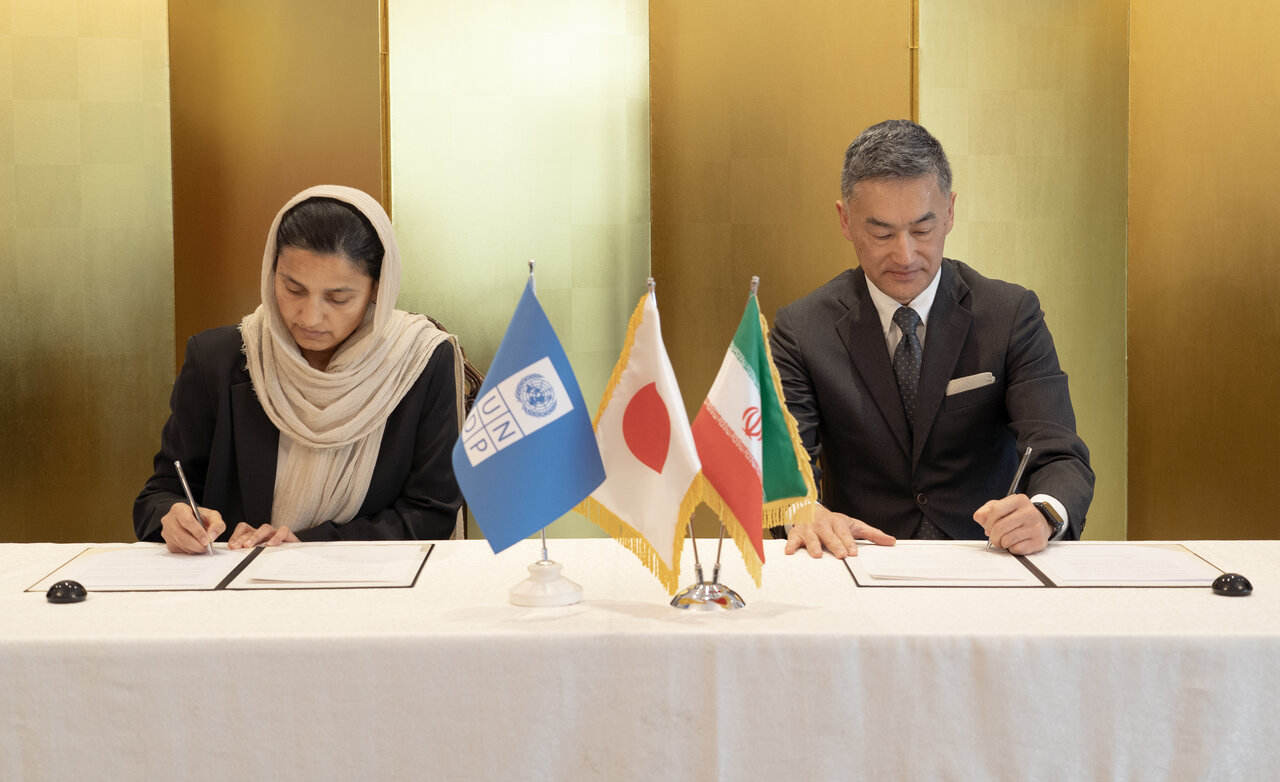UNDP welcomes contribution from Japan to strengthen wetland management, climate resilience in Iran

TEHRAN – The United Nations Development Programme (UNDP) in the Islamic Republic of Iran has received a generous contribution of JPY 690,000,000 from the Government of Japan to enhance wetland management and strengthen climate resilience in Lake Urmia, Shadegan, Parishan, and Anzali wetlands.
Japan has been a key partner of the Government of Iran and UNDP since 2014 in supporting sustainable natural resource management in wetland basins and diversifying livelihoods of communities reliant on wetlands.
During the signing ceremony on 1 December 2024, the Government of Japan and UNDP signed exchange of notes to implement "The Project for Developing Conservation System of Wetlands in Lake Urmia and Other Wetlands including their Surrounding Communities." The project will be jointly implemented with the Department of Environment and in collaboration with the Food and Agriculture Organization of the United Nations (FAO) from 2024 to 2028.
The project will build on the past achievements and will accelerate efforts to successfully scale up piloted models and practices. By focusing on sustainable agriculture and alternative livelihoods that are adapted to climate change, the initiative seeks to create long-term benefits for local communities while preserving the biodiversity of wetlands as vital ecosystems.
"Over the past ten years, the unwavering support from the People and the Government of Japan has positively impacted agricultural productivity and enhanced livelihoods in target communities. In the next four years, we will continue promoting innovative, water-efficient agricultural practices, while emphasizing scaling up for a better future for all,” said Gulbahor Nematova, UNDP Iran Deputy Resident Representative.
H.E. Mr. Tsukada, the Ambassador of Japan to Iran stated: “Iran has 26 valuable wetlands listed under the Ramsar Convention, including Lake Urmia. These wetlands, which are home to diverse species and migratory birds, must be conserved in cooperation with the international community.
Over the past 10 years, Japan has provided support for Lake Urmia conservation, but in order to further restore the wetland, it is essential to manage uncontrollable water extraction, develop an irrigation system that appropriately respond the climate change, and create sustainable industries such eco-tourism.
In addition to directly tackling these challenges, this project’s knowledge and technologies will be utilized in other wetlands in Iran.
We hope that the new project signed today will contribute to the environmental protection and economic development of the areas around the wetlands."
Leave a Comment